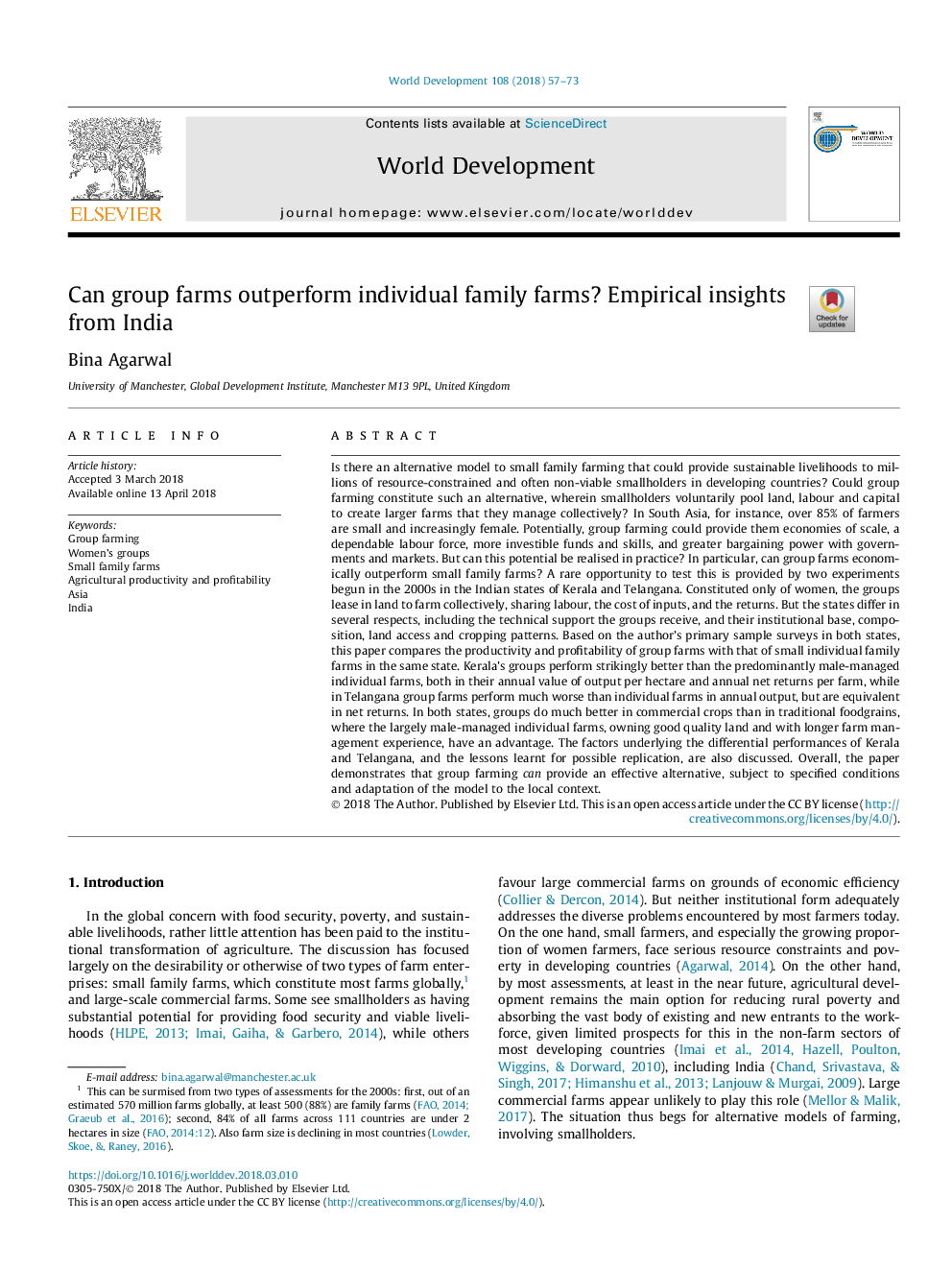| کد مقاله | کد نشریه | سال انتشار | مقاله انگلیسی | نسخه تمام متن |
|---|---|---|---|---|
| 7391680 | 1481110 | 2018 | 17 صفحه PDF | دانلود رایگان |
عنوان انگلیسی مقاله ISI
Can group farms outperform individual family farms? Empirical insights from India
ترجمه فارسی عنوان
آیا مزارع گروه می توانند مزارع خانوادگی شخصی را بهتر کنند؟ بینش تجربی از هند
دانلود مقاله + سفارش ترجمه
دانلود مقاله ISI انگلیسی
رایگان برای ایرانیان
کلمات کلیدی
گروه کشاورزی، گروه های زنان، مزارع کوچک خانواده، بهره وری و سودآوری کشاورزی، آسیا، هند،
موضوعات مرتبط
علوم انسانی و اجتماعی
اقتصاد، اقتصادسنجی و امور مالی
اقتصاد و اقتصادسنجی
چکیده انگلیسی
Is there an alternative model to small family farming that could provide sustainable livelihoods to millions of resource-constrained and often non-viable smallholders in developing countries? Could group farming constitute such an alternative, wherein smallholders voluntarily pool land, labour and capital to create larger farms that they manage collectively? In South Asia, for instance, over 85% of farmers are small and increasingly female. Potentially, group farming could provide them economies of scale, a dependable labour force, more investible funds and skills, and greater bargaining power with governments and markets. But can this potential be realised in practice? In particular, can group farms economically outperform small family farms? A rare opportunity to test this is provided by two experiments begun in the 2000s in the Indian states of Kerala and Telangana. Constituted only of women, the groups lease in land to farm collectively, sharing labour, the cost of inputs, and the returns. But the states differ in several respects, including the technical support the groups receive, and their institutional base, composition, land access and cropping patterns. Based on the author's primary sample surveys in both states, this paper compares the productivity and profitability of group farms with that of small individual family farms in the same state. Kerala's groups perform strikingly better than the predominantly male-managed individual farms, both in their annual value of output per hectare and annual net returns per farm, while in Telangana group farms perform much worse than individual farms in annual output, but are equivalent in net returns. In both states, groups do much better in commercial crops than in traditional foodgrains, where the largely male-managed individual farms, owning good quality land and with longer farm management experience, have an advantage. The factors underlying the differential performances of Kerala and Telangana, and the lessons learnt for possible replication, are also discussed. Overall, the paper demonstrates that group farming can provide an effective alternative, subject to specified conditions and adaptation of the model to the local context.
ناشر
Database: Elsevier - ScienceDirect (ساینس دایرکت)
Journal: World Development - Volume 108, August 2018, Pages 57-73
Journal: World Development - Volume 108, August 2018, Pages 57-73
نویسندگان
Bina Agarwal,
